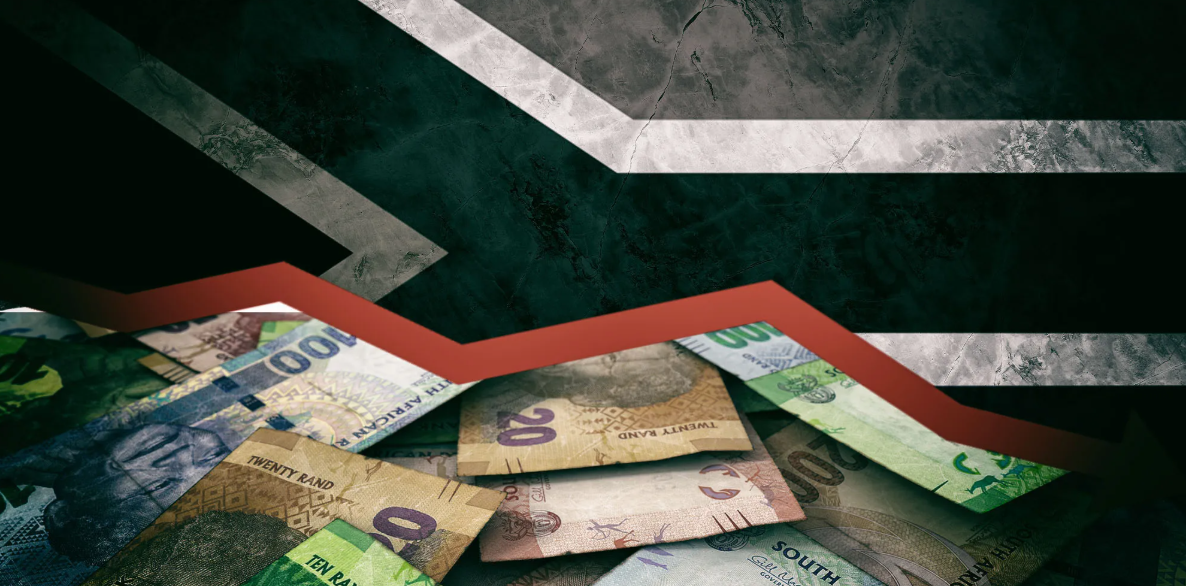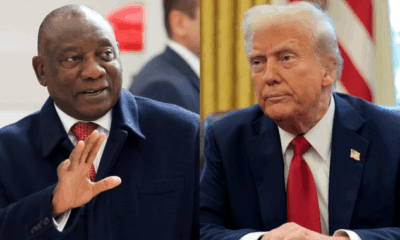Business
Greylisting Is a Symptom: South Africa’s Real Crisis Is Dysfunction Without Consequence

South Africa was greylisted by the Financial Action Task Force (FATF), sparking a flurry of legislative activity and hopeful government statements. Officials touted progress on 20 of FATF’s 22 action items, projecting delisting by 2025. But this optimism masks a deeper, more serious issue.
Greylisting is not the disease—it’s a symptom. The underlying crisis is institutional dysfunction, compounded by a lack of consequences for financial crime. And the verdict from the global market has been swift and unforgiving.
Mounting Costs and Reputational Fallout
Since the greylisting, South Africa has faced capital flight, rising risk premiums, and strained relationships with international banks. According to the South African Reserve Bank, borrowing costs for the country have increased by 30 to 40 basis points—shrinking the fiscal space needed for public services and development.
The reputational damage is only getting worse. In early 2025, U.S. President Donald Trump hinted at possible aid cuts to South Africa, citing “chronic financial opacity.” While the comments were politically motivated, they rang alarm bells for institutional investors. Confidence took another hit, and the cost of capital edged even higher.
The Real Problem: Collapse of Enforcement
The numbers speak volumes. Between 2020 and 2023, South Africa’s Financial Intelligence Centre received over 7.5 million suspicious transaction reports. Fewer than 300 led to investigations or prosecutions. The National Prosecuting Authority has no dedicated anti-money-laundering (AML) unit. Key institutions—from SARS to the Companies and Intellectual Property Commission—work in silos without real-time collaboration.
Even existing mechanisms, like the beneficial ownership registry, lack enforcement power. Data is self-reported, disconnected from other systems, and not independently verified. Non-compliance goes unsanctioned.
South Africa also lacks a central financial sanctions authority. Unlike the UK’s Office of Financial Sanctions Implementation, there is no agency ensuring cohesive, coordinated enforcement. Engagement between banks and regulators is fragmented and ad hoc.
Private Sector Panic, Public Sector Paralysis
In response to weak state action, banks are preemptively shutting accounts they see as high-risk—crypto firms, trust providers, and politically exposed individuals. This is not proactive governance; it’s a sign of regulatory collapse. When private institutions take over enforcement to protect their global reputations, it undermines public trust and the rule of law.
Worse still, FATF performance now influences funding decisions by development banks and affects ESG scores used by investors. A poor track record on AML enforcement threatens South Africa’s ability to secure green finance and concessional loans—just when the country needs investment in public infrastructure most.
A Call to Action for Corporate South Africa
Yet corporate boards remain disturbingly silent. Unlike in the UK, where directors must certify their AML frameworks, South African directors face no such obligation. Despite theoretical liability under existing legislation, the practical responsibility for compliance sits far below board level.
That’s no longer defensible. Governance failures now carry reputational, legal, and financial consequences that hit shareholder value and national development alike.
What Must Change
To restore trust and access to capital, South Africa needs structural reform, not just legislative box-ticking. Key recommendations include:
-
A centralised financial sanctions authority with enforcement power
-
A reliable and independently verified beneficial ownership register
-
A specialised AML prosecution unit with autonomy and ringfenced funding
-
Mandatory board-level AML certification
-
A national task force for coordinated case management and enforcement analytics
South Africa also needs feedback loops—anonymised case studies, post-enforcement reviews, and active industry engagement. Without learning from enforcement failures, there can be no progress.
The Test Ahead
If South Africa is delisted by FATF in 2025, it will be a political win. But the market is asking tougher questions: Can South Africa prove it has the institutional muscle for meaningful enforcement? Or is this yet another round of legislative cosmetics?
Greylisting was the warning shot. The real test is institutional resilience. And if we fail that test, the global market won’t wait for FATF to blacklist us—it will do it on its own.
{Source: Mail & Guardian}
Follow Joburg ETC on Facebook, Twitter , TikTok and Instagram
For more News in Johannesburg, visit joburgetc.com



























